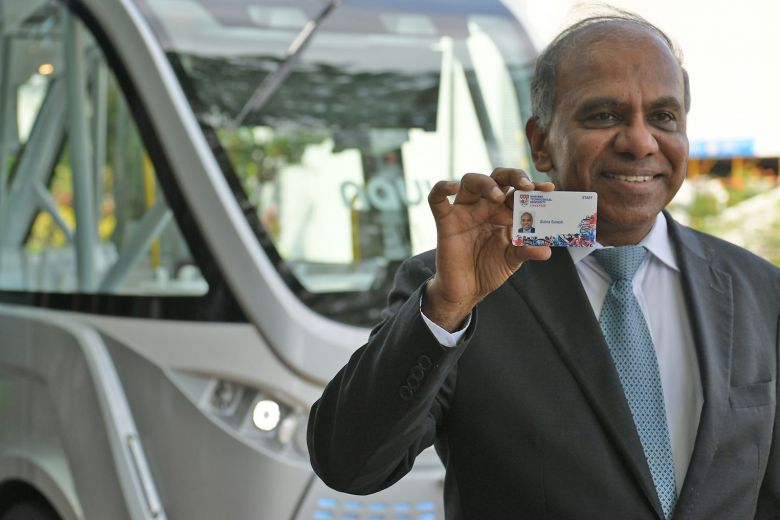A Nanyang Technological University (NTU) student may find himself riding a driverless bus, using drones to deliver parcels to friends or relying on robots to return food trays.
That is what the near future may look like at NTU, which is positioning itself to be Singapore’s largest “smart campus”.
In the nearer future – the next few weeks actually – NTU students will get smart passes that can be used for purposes from cashless payments in the canteen to borrowing books from the library. As the pass comes with a FlashPay function, it can also be used like an ez-link card on public trains and buses, and as a stored-value card for shopping.
NTU president Subra Suresh, who took up the position at the start of the month, has unfurled plans to transform the university into a smart campus that harnesses digital technology and tech-enabled solutions for better learning and living.
The eminent American scientist was formerly president of Carnegie Mellon University and director of the National Science Foundation, which is in charge of advancing science and engineering research and education in the United States. His NTU predecessor Bertil Andersson retired last year.
In a media conference yesterday, Professor Suresh said NTU is an ideal place to research, test and showcase new smart technologies, given its large 200ha campus and a student and faculty population of 40,000.
He said the university’s strengths include many key components driving the Fourth Industrial Revolution. They include robotics, artificial intelligence, real-time and deep data generation and analytics as well as the Internet of Things, or devices connected to the Internet – from light bulbs to smart fridges.
NTU’s strengths in these areas have drawn interest from start-ups, global firms, other universities and government agencies to set up partnerships and programmes that foster innovation, he said.
“We have the critical mass of talent and infrastructure here to launch and test-bed these rapidly advancing technologies to benefit educational and research activities, and to enhance the quality of life for all,” he added.
NTU was recently ranked the top university in the world for artificial intelligence by Japanese news agency Nikkei and Elsevier, a publisher of scientific journals, based on research citations in the field between 2012 and 2016.
The university is also globally recognised for its strengths in engineering, computing and innovation in various other rankings.
The inventions of NTU scientists, including a shelving robot called Super Luigi, have won top awards in worldwide robotics competitions.
Prof Suresh said NTU will aim to take the lead in Singapore’s drive to be a smart nation.
He said: “NTU will also strive to serve as a model for other communities in Singapore and around the globe by demonstrating how advanced tech-enabled solutions can help improve everyday life in a sustainable manner.”
Prof Suresh also announced that as an integral part of its “smart campus” vision, NTU will prepare all undergraduates for the future with new core modules such as introduction to artificial intelligence, beginning with the new academic year this August.
It will also offer a new undergraduate degree programme in data science and artificial intelligence.
But Prof Suresh stressed that for all NTU’s smart campus plans, it was equally important for it to focus on the impact of technology on humans and the natural and built environment.
One of its targets will be a 35 per cent reduction in energy, water and waste intensity by 2020, to become one of the world’s most eco-friendly university campuses.
Article & Photo from Straits Times


